Viewing: Blog Posts Tagged with: Addy Farmer, Most Recent at Top [Help]
Results 1 - 13 of 13
Blog: Notes from the Slushpile (Login to Add to MyJacketFlap)
JacketFlap tags: friendship, sad books, Addy Farmer, Add a tag
Blog: Notes from the Slushpile (Login to Add to MyJacketFlap)
JacketFlap tags: dreams, inspiration, BFG, Addy Farmer, Roadl Dahl, Add a tag
The Dreamers of Dreams by Addy Farmer
We are the dreamers of dreams - Roald Dahl
She said that me being in my own funny little world was a bit frustrating for her; however, she thought that that dreamers were important. The important bit made me feel ten feet tall but with little idea of what she was on about since most of my mental meanderings were to do with going to Sweety Land where I could eat everything in sight or jumping into a puddle which took me to the seaside or rescuing a sad donkey/mouse/rabbit from certain doom.
 |
| A real donkey being rescued! Don't worry - he was fine and happy |
Only in our dreams are we free. The rest of the time we need wages. Terry Pratchett
 |
| It was all a dream ... |
And then, in dreaming,Back to Granny. When I was about eight I had an incredible experience. I so loved being with Granny at her house and I would frequently dream about being there. One night, I dreamed about my bedroom in that house - the perfumey scent, the sunshine on the bed, the creaking wardrobe door. I woke up and for a glorious few seconds I was there - in that bed, in my granny's house and my happiness was like sunshine. It lasted no time and I woke up again, confused and with a terrible weight of disappointment and a fierce yearning to be back there. Sometimes, I think that this it is what being a ghost might feel like - a tremendous yearning to get back to life. I haven't knowingly used this experience in my work but I recognise it in other stories.
The clouds methought would open and show riches
Ready to drop upon me, that when I waked
I cried to dream again. Caliban, The Tempest, Shakespeare
 |
| Don't let her in, you fool |
knocking my knuckles through the glass, and stretching an arm out to seize the importunate branch: instead of which, my fingers closed on the fingers of a little, ice-cold hand. The intense horror of nightmare came over me: I tried to draw back my arm, but the hand clung to it, and a most melancholy voice sobbed, "Let me in—let me in!"Set on the wild and windy moors, Bronte’s Victorian classic has lots of dream-like qualities. There are several occasions when characters are guided by their dreams. The character Lockwood has an unsettling dream about a brawl at an endless church sermon while staying at Wuthering Heights, while Catherine accepts a marriage proposal from Edgar after connecting a dream about going to heaven with their union.
‘I have dreamt in my life, dreams that have stayed with me ever after, and changed my ideas; they have gone through and through me, like wine through water, and altered the colour of my mind. And this is one: I’m going to tell it – but take care not to smile at any part of it.’ the HousekeeperThere are those books which deal directly with dreams like one of my favourites, 'Marianne Dreams' by Catherine Storr.
Ill and bored with having to stay in bed, Marianne picks up a pencil and starts doodling - a house, a garden, a boy at the window. That night she has an extraordinary dream whereby she is transported into her own picture, and as she explores further she soon realises she is not alone. The boy at the window is called Mark, and his every movement is guarded by the menacing stone watchers that surround the solitary house. This story is creepy, disturbing and I realised that it echoed one of my own childhood nightmares where a witch lived in the house next door and I had to devise lots of ways to escape her attentions.
How about Harry Potter and the Order of the Phoenix. There is a door at the end of a silent corridor. And it's haunting Harry Potter's dreams. Why else would he be waking in the middle of the night, screaming in terror?
As with Agamemnon’s dreams, courtesy of Zeus (I've waited a long time to reveal that nugget of knowledge), Harry is also led astray by subconscious thoughts implanted by a villain.
 |
| I love a spooky door |
I cannot write about dreams without referring to Alice in Wonderland by the peerless Lewis Carroll
Lewis Carroll really took full advantage of the limitless possibilities of writing within a dream setting. The 19th century author used Alice’s ability to get lost in the dream state and make connections and observations in her real life – much like we all actually do when dreaming.
‘Yes, that’s it! Said the Hatter with a sigh, it’s always tea time.’
Then there's, Mary Shelley's, Frankenstein
With a head full of an evening’s talk of reanimation and galvanism, Mary Godwin did not sleep well: “My imagination, unbidden, possessed and guided me, gifting the successive images that arose in my mind with a vividness far beyond the usual bounds of reverie?.I saw the pale student of unhallowed arts kneeling beside the thing he had put together. I saw the hideous phantasm of a man stretched out?” She realized she had found her “ghost story.” “What terrified me will terrify others; and I need only describe the spectre which had haunted my midnight pillow.”
Twilight by Stephanie Meyer
In June of 2003, suburban Arizona mother Stephenie Meyer woke up from an intense dream in which two young lovers were lying together in a meadow, discussing why their love could never work. On her website, Meyers says, “One of these people was just your average girl. The other person was fantastically beautiful, sparkly, and a vampire. They were discussing the difficulties inherent in the facts that A) they were falling in love with each other while B) the vampire was particularly attracted to the scent of her blood, and was having a difficult time restraining himself from killing her immediately.”
Dr Jekyll and Mr Hyde by Robert Louis Stevenson
His horror classic also sprang into existence because of its writer’s graphic nightmares. In this case, a “fine bogey tale” tormenting him as he slept grew into one of the most famous and genuinely scary English-language novels ever penned — most especially considering its all-too-human antagonist and protagonist.
"In the small hours of the morning," says Mrs Stevenson, "I was awakened by cries of horror from Louis. Thinking he had a nightmare, I woke him. He said angrily, 'Why did you wake me? I was dreaming a fine bogey tale.' I had awakened him at the first transformation scene ..."
Stuart Little by E.B. White:
One of the most memorable and beloved characters from children’s literature entered into E.B. White’s subconscious in the 1920s, though he didn’t transition from notes to novel until over two decades later. From there, the tiny boy with the face and fur of a mouse became a classic.
Blog: Notes from the Slushpile (Login to Add to MyJacketFlap)
JacketFlap tags: writing ideas, January, Addy Farmer, Add a tag
by Addy FarmerDid you know that January used to be known as the Wolf month? Well, that's what the Anglo Saxons knew it as - when food was so scarce that the wolves dared to enter the villages. There's still something of the wolf about January...  |
| How'll I find those ideas?? Now, January is a time of non-wolf voluntary dieting. It's when garden life seems to hibernate (usually) and the shops are like old news and Christmas sparkle is packed away. But January is also fresh-faced and full of promise; maybe you wrote an entire novel in November with NaNoWriMo? Maybe you packed in some story-making during the Christmas holiday? Now in the month of the brand new year you have sent your precious babe out into the woods in the hope that she is picked up by someone who will love her to bits. Even if you are not waiting and waiting, sometimes January can be a curiously creatively empty month. So it's best to crack on and fill it with ideas because you never know - one of them might become a proper real story. |
“What are you?" I whispered.
He shrugged again.
"Something," he said. "Something like you, something like a beast, something like a bird, something like an angel." He laughed. "Something like that.”
David Almond - Skellig
So what to do? I write them down on a scrap of paper which I lose. Or pop an idea into a notebook in close type and think that it's the most marvellous idea EVER and then never go back to it. Or keep it in a box ready for Doomsday and forget where the box is. Useless? No, not at all because somewhere, something happens and my brain sifts and sorts so that far from being a palace it becomes more of a compost bin and every so often something germinates.
 |
| Food for thought |
Soooooo, ideas and where to always be able to find them.
This is a great source of fun and inspiration. How about The Henn-na Hotel, which translates to "strange hotel," and is staffed almost entirely by robots. Or some very important research which answers the question, 'Where should Americans retreat in the event of a zombie apocalypse?' The answer to this and more science stuff can be found in Live Science.
Old inventions
With their tortuous methods and construction old inventions make my heart skip a beat. In fact, I like then so much that I based an entire character around them with my Wilf's World Blog. Wilf loved inventions (as should we all) like the fantastically named Tempest Prognosticator or the more ordinarily named lawnmower and its inventor, Edward Bear Budding. A lot of these Victorian inventors also had brilliant names like Sir Godlsworth Gurney who invented giant machines for heating large spaces like cathedrals and who nearly blew up the Houses of Parliament. |
| The Tempest Prognosticator - early weather machine |
News stories for new stories.
There is so much weirdness out there (or maybe I'm just very tame) and it's interesting to be an onlookerYou Can Now Pay To Have Someone Call Your Friend As A Turtle
The Huffington Post is a repository of odd stories. Who wouldn't want to have a call from a turtle and mistake it for a real turtle who has gained astonishing super-powers and sends your hero off on a trail of the mad scientist who has captured this innocent creature and seeks to exploit it ...
Fly-tipper sought to blame imaginary twin brother for his crimes
Brunch news reports a fly-tipper who blamed an imaginary identical twin for illegally disposing of car tyres. Yep, there's a story right there ... |
| Blame the other one |
Images
| Honey and Izzy fall out about who is trundling through the bendy tube first |
 |
| Stuck in the mud |
| Wheel on fire |
| Ruin in the woods |
 |
| Tell me a story |
Books by the side of the bed.
Along with my to-read pile, there is also a permanent stack of books which I go for ideas.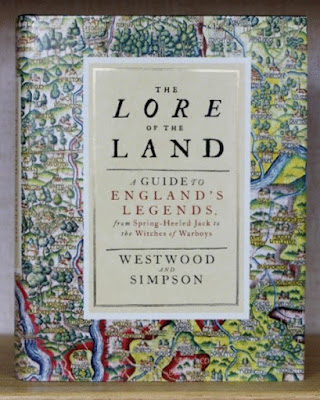 |
| Fantastic book for spooky/funny/ridiculous stories |
 |
| Magic is real ... |
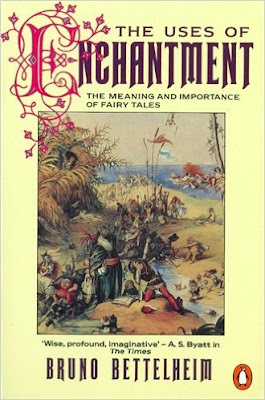 |
| dipping in to find stories behind stories There is so much more, so many places you can go, places you can see, people you can meet, astonishing stories to uncover. They won't all stick but they'll be one or two that do and what fun there is in the finding. Finally and perhaps most importantly ... |
Blog: Notes from the Slushpile (Login to Add to MyJacketFlap)
JacketFlap tags: SCBWI, friendship, Addy Farmer, SCBWI conference 2015, writing ffriends, Add a tag
by Addy Farmer
| Friends celebrate at the SCBWI conference! |
friend - noun
a person attached to another by feelings of affection or personal regard. orig. present participle of frēogan, cognate with Gothic frijōn to love
 |
| Harry - in a place of isolation |
 |
| Croc is looking for a friend at Christmas |
I loved the brother sister friendship in I'll Give you the Sun, how it broke down, how each made new friends, before finding each other again. I also loved, as a child, the sibling friendship in Linnets and Valerians. Perhaps it has something to do with not having silblings that this type of friendship always catches me. Nicky Schmidt
Nobody understands you like a friends does ...
“Without friends, no one would want to live, even if he had all other good.' Aristotle
 |
| Crispin has everything or does he? |
I would not wish
Any companion in the world but you.
(The Tempest 3.1.60-1), Miranda to Ferdinand
There are as many different types of friends as there are characters
I love the way Oliver Jeffers explores friendship in his boy and penguin books (Lost and Found, Up and Down etc). The misunderstandings and problem solving are handled beautifully .Katherine Lynas
 |
| A short-lived but bright-burning friendship between a pig and a spider |
 |
| Max is called stupid and Freak is called Dwarf but together they are unstoppable |
 |
| Pippa Wilson Flora And Ulysses is an absolutely brilliant one to look at. |
 |
| An important story of an unstoppable friendship |
 |
| Not so dumb creatures |
 |
| You don't have to speak the same language to make friends |
School Friends - The first rule of children's books is Kill The Parents/Adults, that leaves your character only one option - make friends. It's a brilliant story arc that works everytime. New school, everyone hates me, make friends. I'm all alone with no one to help me, turn to another child for solidarity. I use this theme again and again. Oh! My secret is out! Jo Franklin
 |
| Friendship does not recognise fences |
 |
| Stephanie Cuthbertson pointed out the friendship in Huck Finn as unconditional with no agenda and no prejudice. |
 |
| Friendship can be stronger than death |
It's as good as picking up a sword. Remember Neville in Harry Potter?
Someone can overcome incredible odds to rescue their friend. In The Snow Queen, small, young, Gerda risks her life and soul to recover her friend, Kay from the Snow Queen.
 |
| A wonderful illustration by the illustrator Amy Chipping |
In the end, friends will not give up on you
"To find out where Jonah had gone, he would have to go there too. One day it would come. He would hear something or see something, and he would know that this was the day. It might be only hours from now, it might be years. But he would know it when it came ... And then, he knew, he would find him."
Story or real-life
A friend will fight for us
Stick up for us
Or close their eyes to our faults ...
Thanks to all our SCBWI friends who contributed to this blog. Catherine Friess also wrote a lovely post in Story Snug about fictional best friends - take a look for more ideas!
So back to the beginning and friend now; here are a few photos of friends or confrere at the conference!
| Pirate Pals |
| Ah-ha! |
| Ahhhhhhh! |
| Aye, aye, Cap'n! |
| Pirates have seldom looked better |
| Pirate lovelies |
| Pals |
Blog: Notes from the Slushpile (Login to Add to MyJacketFlap)
JacketFlap tags: writing exercises, Addy Farmer, Jim Kay, Marcus Sedgewick, Apahntasia, visual imagination, Add a tag
by Addy Farmer
I wonder if you can summon up the image of a glorious sunset inside your head? Can you capture the nuance of colour in the sky, the shape of the sun, the texture of the scene? I'll leave that one with you for now.This ability is sometimes referred to as 'the mind's eye':
The phrase "mind's eye" refers to the human ability to visualise i.e., to experience visual mental imagery; in other words, one's ability to "see" things with the mind.
In an interesting blog summary I found:
"There was a debate, in the late 1800s, about whether "imagination" was simply a turn of phrase or a real phenomenon. That is, can people actually create images in their minds which they see vividly, or do they simply say "I saw it in my mind" as a metaphor for considering what it looked like?
Francis Galton, a nineteenth century psychologist, gave people some very detailed surveys, and found that some people did have mental imagery and others didn't. The ones who did had simply assumed everyone did, and the ones who didn't had simply assumed everyone didn't."
 |
| Francis Galton - close your eyes and then try and recall the detail of his lovely sideburns |
She ... realised that her ability to conjure a mental picture differed from her peers during management training in her 20s. She said: “We were told to ‘visualise a sunrise’, and I thought ‘what on Earth does that look like’ – I couldn’t picture it at all. I could describe it – I could tell you that the sun comes up over the horizon and the sky changes colour as it gets lighter, but I can’t actually see that image in my mind.”What does this mean for readers? Beyond being presented with images in a book full of pictures, is a reader hampered by an inability to conjure images in her head? Crucially - does it put someone off reading non-illustrated texts when they are older? In the Exeter summary, a bookshop worker says
Dame Gill has a successful career and does not feel hindered by her lack of a “mind’s eye”. But she said: “I became more aware of it when my mum died, as I can’t remember her face. I now realise that others can conjure up a picture of someone they love, and that did make me feel sad, although of course I remember her in other ways. I can describe the way she stood on the stairs for a photo for example, I just can’t see it.”
Niel works in a bookshop and is an avid reader, but avoids books with vivid landscape descriptions as they bring nothing to mind for him. “I just find myself going through the motion of reading the words without any image coming to mind,” he said. “I usually have to go back and read a passage about a visual description several times – it’s almost meaningless.”
 |
| Okay - which part of my fevered brain did this come from? |
Consider this, the strangest of facts: your thoughts, memories and emotions, your perceptions of the world, and your deepest intuitions of selfhood, are the product of three pounds of jellified fats, proteins, sugars and salts – the stuff of the brain and as tough as blancmange. It's absurd, wonderful and terrifying. The Guardian Review of The Mind's Eye by Oliver Sacks
 |
| Beware moving vehicles |
Now close your eyes. In your mind's eyes, picture the object as if you were still looking at it. If you have a rough time at first, just make something up. Try to get as many details correct as you can. Now open your eyes again and look again at the object. Study it in great detail for a few moments.
Keep going back and forth like this for five or ten minutes. Play around with the exercise a couple times a day to become good at this skill.
3. Object drawing. He tried 3D constructions of blocks and tried drawing them from different angles on paper. But there was no actual imagery or mental rotation involved.
 |
| Marcus Sedgewick talked about falling in a ditch full of snow whilst researching and transferring the experience of gasping cold into his writing. |
Blog: Notes from the Slushpile (Login to Add to MyJacketFlap)
JacketFlap tags: snow, Marcus Sedgwick, Emma Chichester Clark, Moomins, winter stories, Addy Farmer, Add a tag
by Addy Farmer
About two minutes ago, the Summer Holidays stretched out like this ... |
| not a computer in sight |
 |
| Moominpapa could write whenever he wanted to |
Never mind because in the end reading is the stuff of writing.
The media would have us think that Summer is a time for reading and I did read alot although not on the beach. But I don't think that I read anymore than I do the rest of the year. Radio 4 even had a brief say about how summer reading was no different to winter reading on the daily commute, really. Most of my summer reading has been a writer new to me, Frances Hardinge. I whipped through the brilliant, 'Verdigris Deep' and 'The Lie Tree' and 'Cuckoo Song'. I've just started, 'A Face of Glass'. These are cracking good stories and that is what I like to read any time of the year.
But I do like Winter and stories set in winter time. So, let's just conveniently forget the intervening hufflepuff-like season of Autumn and spring to contemplation of Winter stories. Is there a difference between these and those set in Summer? Perhaps, we might personify them. Summer is perky with arms-wide and smiling where Winter is dark, hunched and dour. One camps outdoors, one skulks inside. One looks out at the world, the other looks inwards ... well, you get the idea.
Winter is coming (say it like a cinema trailer announcement). Put that way, it sounds scary which to my mind is not a bad thing. Traditionally, Winter is associated with death and hibernation. It is when the flowers fold and the garden hides. The cold makes your fingers freeze and your bones ache; it requires effort to keep warm and keep moving.
 |
| Hope you're wearing a vest, Gandalf |
SNOW!
Winter Time by Robert Louis Stevenson
Close by the jolly fire I sit
To warm my frozen bones a bit;
Or with a reindeer-sled, explore
The colder countries round the door.
When to go out, my nurse doth wrap
Me in my comforter and cap;
The cold wind burns my face, and blows
Its frosty pepper up my nose.
Black are my steps on silver sod;
Thick blows my frosty breath abroad;
And tree and house, and hill and lake,
Are frosted like a wedding cake.
Here, in A Child's Garden of Verses, Stevenson sums up all the good stuff I used to love as a child about Winter. it could be the comfort of playing outside on a snapping-cold day, then the glorious comfort of warming yourself, not to mention the breath-taking beauty of a landscape transformed by SNOW.
 |
| Where the dickens did all this snow come from?! |
" The darkness and the mist had vanished with it, for it was a clear, cold winter day, with snow upon the ground ... the quick wheels dashing the hoar-frost and snow from off the dark leaves of the evergreens like spray"
I like that C.S Lewis added a touch of Victorian London to Narnia. Not only that but the snow makes it beautiful. I want to go there. The snow plays a more sinister role here; it is seen as stilling time and freezes life to its essentials. The land waits for Winter to end (spoiler - it does).
 |
| RUN! |
 |
| Mad as a box of frogs |
 |
| She looks almost cuddly |
 |
do not cuddle this bear |
 |
| The best cover in the world |
I'm gonna sit here in my place on the hill behind the house. Waiting. And watching. Ain't nothing moving down there. The valley look pretty bare in the snow. Just the house grey and lonely down by the river all frozen.The snow can force you inside and send you mad or make you see things that might or might not be there. It is the perfect setting for a ghost story as Dark Matter by Michele Paver so brilliantly and shiveringly demonstrates. The snow blinds the hero, Jack. “How odd, that light should prevent one from seeing.” he says. The snow controls his movements and eventually his mind and makes him see what should not be there. In the end, the snow subdues him.
Ah, but it's not all teen-angst gloom and doom. At the younger end, there are so many ways for snow to be the cheery, comforting, exciting and playful.
Summer fading, winter comes
Frosty mornings, tingling thumbs,
Window robins, winter rooks,
And the picture story-books.
Picture Books in Winter by Robert Louis Stevenson
 |
| Come in! It's lovely and warm inside! |
Bear and Hare:Snow! by Emily Gravett celebrates the joy to be had with friends in the snow.
 |
| We've all done it |
.... before the warmth of friendship found and all wrapped up in Christmas - lovely.
I leave the obvious to last and I'll whisper it, Christmas. It seems that no Christmas is complete without snow. I agree. I want Christmas to have deep and crisp and even snow ...
so we can make snowmen.
So never mind that it's the end of Summer, Winter is coming and it brings ...
Blog: Notes from the Slushpile (Login to Add to MyJacketFlap)
JacketFlap tags: Getting Published, Rift, Addy Farmer, Beverley Birch, Golden Egg Academy, view from my desk, Add a tag
Beverley Birch is friend and mentor to many slushpilers and published authors alike. She was a senior commissioning editor for Hodder Children's Books and three times shortlisted for the Brandford Boase Award in recognition of the editor’s role in nurturing new talent. She is a writer of more than 40 books including novels, picture books, biographies and retellings of classic works and folk
Blog: Notes from the Slushpile (Login to Add to MyJacketFlap)
JacketFlap tags: Picture Books, Bridget Strevens-Marzo, Candy Gourlay, Addy Farmer, Jo Wyton, Jane Clarke, Bryony Pearce, Juliet Clare Bell, Sally Poyton, Dawn Finch, Liz Miller, Emma George, Marian Librarian, Add a tag
by Addy Farmer Then Bella did something very kind. 'Would you swap this Teddy for my brother's dog then?' she asked. Just look at Dave - heartbreaking. Shirley Hughes' illustrations perfectly match the tone of the text What is it about this bit of Dogger by the genius Shirley Hughes that moves me so much? What is it that makes my voice wobble? First of all, there's Bella's kindness
Blog: Notes from the Slushpile (Login to Add to MyJacketFlap)
JacketFlap tags: Malachy Doyle, Cornerstones, Candy Gourlay, Undiscovered Voices, Maureen Lynas, Juliet Clare Bell, The Arvon Foundation, Rebecca Colby, Eve White, Addy Farmer, Julia Goulding, Add a tag
By Maureen Lynas Are you embarrassed by the size of your slushpile? Do you hide it, ignore it, lie about it? DON'T! Be PROUD of it! SHOUT about it. I'm telling you now - MINE IS HUGE! Why am I telling you now? Well, after reading Candy's latest blog post on the trauma of completing her second book, and seeing ex-lurker Tamsin's comments about writing for six years and not giving up, I was
Blog: Notes from the Slushpile (Login to Add to MyJacketFlap)
JacketFlap tags: Getting Published, Penguin, Cornerstones, Chicken House, Addy Farmer, Kathryn Robinson, Add a tag
by Addy Farmer So here it is. Finished. For some weird reason, I'm almost ashamed to admit that the manuscript for my 12 plus novel has been 9 years in the making and began taking shape soon after my youngest was born. However, before you decide that I must have been carving it out a word at a time, I would point out that, no, I hadn't been working on it the whole time. I would have exploded
Blog: Notes from the Slushpile (Login to Add to MyJacketFlap)
JacketFlap tags: SCBWI, Addy Farmer, Julie Fulton, Juliet Clare Bell, Linda Ravin Lodding, That'll Be the Debut, Add a tag
by Addy Farmer Featuring Juliet Clare Bell, Linda Ravin Lodding and Julie Fulton On Notes from the Slushpile, we chronicle the slings and arrows of trying to make a dream come true so we get embarrassingly excited about debut authors. In our new series That’ll Be The Debut, we meet debut authors and get the lowdown on what life is like beyond the Slushpile. Here is the fourth of the series in
Blog: Notes from the Slushpile (Login to Add to MyJacketFlap)
JacketFlap tags: Caroline Green, Dark Ride, Janet Foxley, Helen Peters, The Secret Henhouse Theatre, Muncle Trogg, Addy Farmer, Add a tag
By Addy Farmer Featuring Janet Foxley, Caroline Green and Helen Peters On Notes from the Slushpile, we chronicle the slings and arrows of trying to make a dream come true so we get embarrassingly excited about debut authors. Last week, we launched our new series That’ll Be The Debut, where we meet debut authors and get the lowdown on what life is like beyond the Slushpile. Here is the second of
Blog: Notes from the Slushpile (Login to Add to MyJacketFlap)
JacketFlap tags: "getting published", Addy Farmer, Getting Published, Add a tag
By Addy Farmer Guest Blogger So I'm at Point A ready to take flight. I'm wearing my sparkly Captain's uniform and I'm just brimming with confidence, eager to reach Point B. I have a fabulous crew of top notch characters, well rounded yet vulnerable, all ready to do my bidding. My ship is beautifully constructed both inside and out. With such a crew, with such a craft surely a swift flight







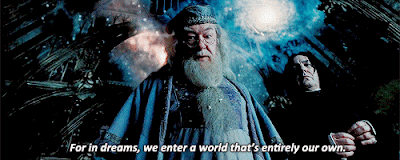














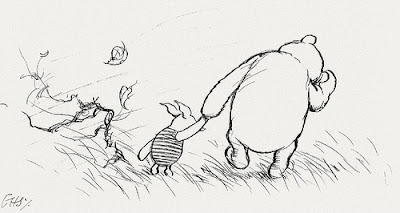






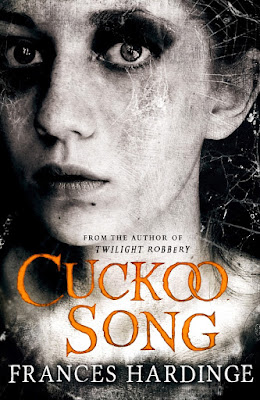







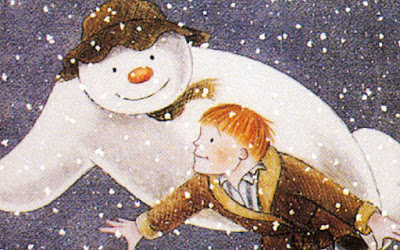
Don't Let Go by Jeanne Willis and Tony Ross always gets me! I have to steel myself to read it out loud.
Thanks, Addy. And Debi Gliori's 'No Matter What' -the UK English non-board book edition. Interesting what Jane said about the US market being happier to have something tear-jerking. 'No Matter What' in the States has a massively toned down ending to remove all reference to death. If you know the book (in the English version), you'll know how crazy that is. The final couple
Something Else by Kathryn Cave and Chris Ridell always kills me with the line, 'You're not like us. You're something else'. And ditto the line from Dogger. I can almost burst into tears even thinking about Dogger!!! I also love, love, love the line from Tiger Who Came to tea about being in the cafe with all the lights outside..<br />*lies in corner and sobs for rest of day*
Ah, yes! Thanks, Charlotte!
That's lovely, Clare. Sooo happy Debi's going to be at Winchester!
That scene in Tiger says so simply and unsentimentally what it's like to be a child. I also like another book by Kathryn Cave and Nick Maland called, 'Friends'. I love this, "when you are lost, in the wood, in the wood, I will find you." Bravery and friendship in a lyrical line - love it.<br />Now, cheer up, Caroline!
What a lovely post Abby. Wonderful to read about such moving stories, and what they mean to people. Also great to find out about books that I've not heard of. I can feel a trip to my local book shop coming on.
I interviewed a bunch of kids about their favourite books and it was interesting that when they started reminiscing about the picture books that they loved when they were barely out of babyhood, they got quite emotional (watch the film <a href="http://www.candygourlay.com/2012/07/we-read-my-diy-documentary-of-what.html" rel="nofollow">here</a>). <br /><br />I so agree with you about Oscar Wilde -
thanks, Sally! Hope you enjoy a good weep!
I love your 'We Read' video - such an important film to see, I think. I'd forgotten The Happy Prince and THAT line. Waaaah indeed.
I can't possibly read this! I'm crying too much! Could someone pass me a tissue?
I meant to say 'ALL of the work'
you'll set everyone off, Jackie!
One line that has always stuck in my mind is from Not Now Bernard - But I'm a monster, said the monster. It may not tug on the heart strings as much as some others but I can still remember the first time I read it - I felt his confusion!
Lovely post. I loved The Maggie B by Irene Haas as a child which is a surreal story about a girl bringing up her little brother on a boat all on her own. Even as a child, I felt there was a sadness to this story although it was a 'wish-come-true' and when Margaret sings her brother to sleep, I always feel a little teary.
"Her Mother's Face" by Roddy Doyle and illustrated by Freya Blackwood. It's just so beautiful to look at, and I love how the girl struggles to remember what her mother looks like. As she grows up she sees her mother's face reflected in her own. I was very teary just thinking about my grandparents and trying to remember the sound of my grandpa's voice. He didn't talk
I know what you mean although I felt so very sad reading this out loud. Kept wondering if I did that ignoring thing too much. Children just enjoyed it for what it was.
Thanks, Amelia. I don't know that story but will look it out.
Meant to say, have you read 'Bye, Bye Baby?' by the Ahlbergs?
Ah, that's so sad! And clever with the ending. I love the way pci books can be appreciated at different stages of life.